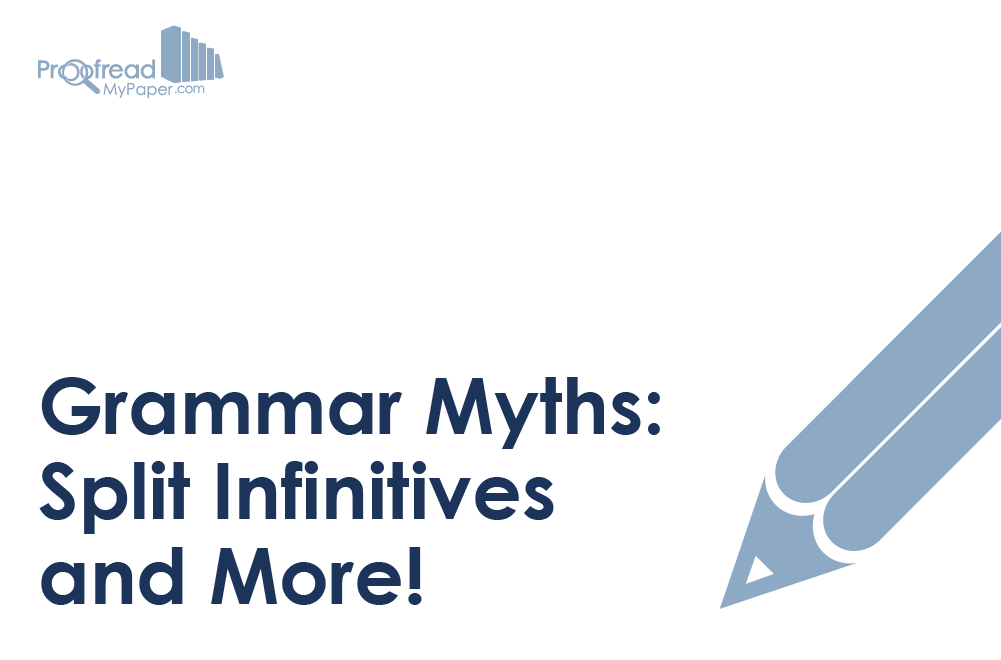As proofreaders, we’re obviously keen on good spelling and grammar. However, since we like to get invited to parties sometimes, we try to avoid being too pedantic when possible.
Not all pedants are quite so chilled out, though, so you might want to keep an ear out for these grammar myths so that you can correct any overeager correctors you meet!
Myth #1: Never Split an Infinitive
The “infinitive” is a verb form where a verb is combined with “to,” such as “to run” or “to jump.” It’s also the subject of one of the most common grammar myths around: “Never split an infinitive.”
The most famous example of a split infinitive comes from Star Trek, wherein various crews of the USS Enterprise are charged with a mission “to boldly go where no one has gone before.”

Here, the adverb “boldly” appears in the middle of the infinitive “to go.” As such, some people insist that it’s grammatically incorrect and should be “to go boldly where no one has gone before.”
This “rule” was popularized by Henry Alford in 1864, based on the idea that splitting infinitives was “flying in the face of common usage.”
But many writers have split infinitives throughout the history of modern English. And sometimes placing an adverb between “to” and a verb is a good way of ensuring clarity, since it removes ambiguity about the word being modified.
Kirk, Spock and friends can thus “go boldly” without worrying too much about their grammar.
Myth #2: Don’t Start a Sentence with a Conjunction
Another common grammar myth is that you should never start a sentence with a conjunction, especially coordinating conjunctions (e.g., “and,” “or” or “but”).
Find this useful?
Subscribe to our newsletter and get writing tips from our editors straight to your inbox.
In fact, these terms can be used to start sentences if required. The myth may have origins in teachers noticing schoolchildren overusing conjunctions like “and,” such as in the following:
We went on holiday to Brazil. And mom went swimming in the sea. And dad got sunburn. And a monkey stole my lunch…

When kids write like this, they might be told not to start sentences with conjunctions.
However, while starting every sentence with “and” is clearly a bad idea, in some situations beginning a statement with a conjunction is fine, like presenting something as an afterthought:
I need to buy milk. And cheese. But not bread.
Starting a statement with a conjunction can also help to transition between sentences or enhance the flow of prose. It isn’t always correct, especially when you’re left with a sentence fragment in formal writing, but you can usually tell if a conjunction has been misused.
Annoyingly, this myth persists despite a consensus among grammarians and writers that it’s nonsense. And as we’ve done it several time in this blogpost, including at the start of this sentence, you can probably guess that we agree with the majority here.



